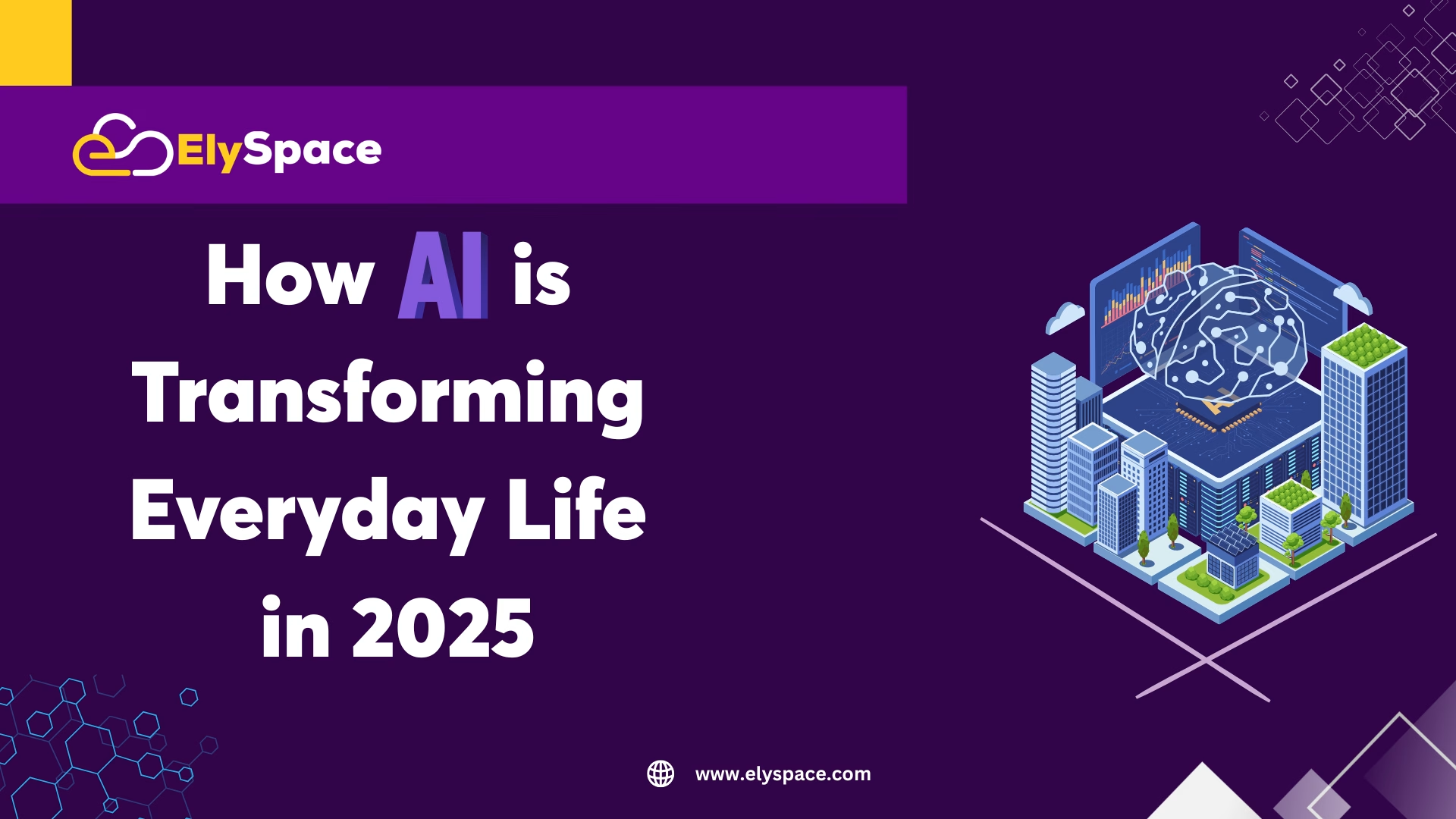Modern smart home with AI-powered devices and holographic interfaces showcasing artificial intelligence integration in 2025
Artificial Intelligence has transitioned from a science fiction fantasy , to a fundamental aspect of our everyday life. As we reside in 2025, AI technologies are no longer the “buzz words” at tech conferences ,it has silently been changing the ways we work, interact, learn, do business, and even live. From when we wake up, thanks to our AI alarm clocks, to the content we consume before going to sleep that has been personalized by AI, artificial intelligence is entrenched in modern life.
The changes are happening at an extraordinary pace. In earlier technological revolutions, changes could take decades to reach scale. The adoption of AI technologies today is entirely different, adoption is quicker than the upper limit of what is possible to adopt by just early adopters, which is changing how whole industries operate, creating new opportunities, and altering how we use technology and engage with one another entirely.
The Present State of AI in Everyday Life
The AI ecosystem of 2025 is truly exciting. What I find most interesting is how advanced AI technologies will be used to enhance day-to-day activities. Smart assistants for example have grown far beyond acting simply on voice commands to now allow giving advanced and accurate orders to a digital friend/partner that will report in what you have to do or provide reminders for things coming in the near future. AI assistants are now aware of context, emotions, and personal preferences with remarkable accuracy.
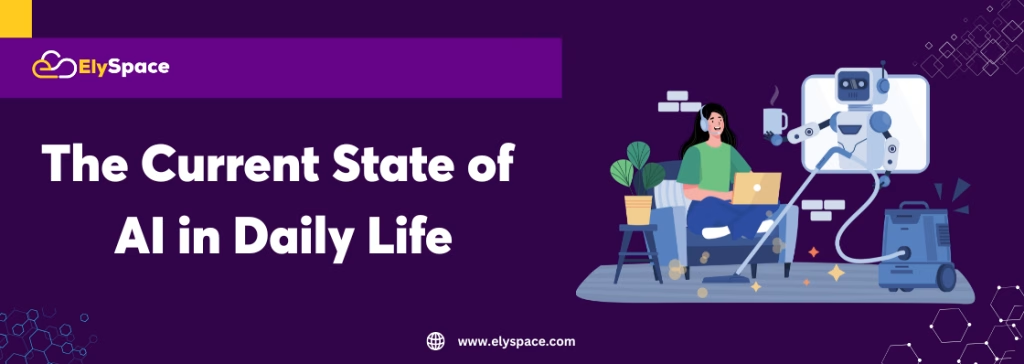
AI assistant seamlessly working across smartphone, smart speaker, and tablet displaying personalized recommendations and scheduling
Machine learning algorithms have made recommendation engines so sophisticated now as well. Whether you are trying to decide which movie to watch on a streaming service, where to order dinner from, or what product to buy online, AI systems analyze your behavior, your preferences and even your current mood and provide suggestions that are usually a very accurate representation of your behavior. Consumer experiences have transitioned from being something generic toward experiences that are hyper-individualistic.
The transportation realm is included, with AI-based navigation tools offering the ability to influence traffic patterns and to influence the best time to leave, as well as alternative routes based on timely conditions and preferences. While not everywhere, autonomous vehicles are becoming commonplace in urban settings, and they aim to show people what it’s like to let AI take care of the complex tasks of driving.
AI within Smart Homes and IoT Devices
Smart home technology has come of age in 2025. In past years it was a novelty, but today, using AI as the brain of your home, we can utilize smart home technology as the management arm of your household. Today’s smart homes are filled with AI systems that can take care of mundane tasks like lighting and temperature adjustments according to family routines without being prompted, and can learn occupancy rhythms and incorporate any number of external factors like weather when optimizing utility usage.
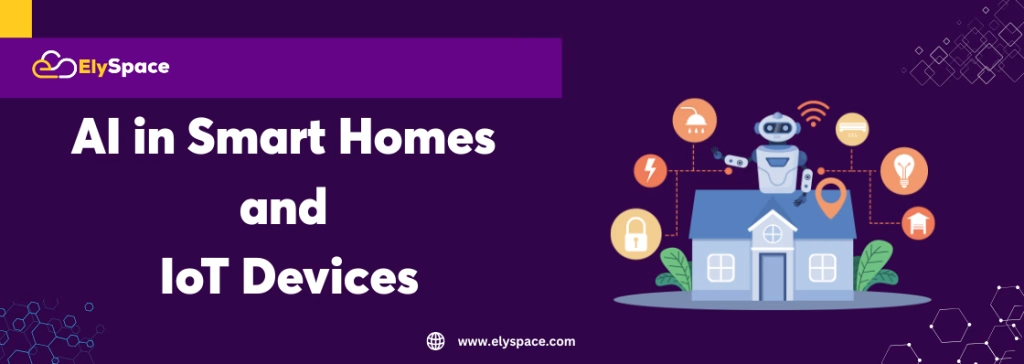
Smart home ecosystem diagram showing AI connecting thermostats, lighting, security cameras, and appliances for automated living
Security systems have gotten very sophisticated. Security systems are impacting and using features from computer vision and behavioral analysis to distinguish between a family member, guest, delivery person, friend, and a potential threat. Security systems can recognize outliers easily by subsets, send specific alerts about occurrences, and can connect and turn on emergency services, if needed. Systems and the AI uses information to provide context to our recordings.
AI-enhanced kitchen appliances offer recipes based on ingredients, dietary needs and personal preferences. Some smart refrigerators keep track of expiration dates, food consumption, and can add items to grocery lists automatically. Cooking has become more intelligent. There are cooking appliances available that will determine, based on the item you placed in the oven, automatic cooking time and/or temperature adjustments.
Energy management is another consideration. AI systems analyze your energy consumption, weather predictions and utility pricing structures to manage/how to consume energy efficiently. The system will automatically switch sources of energy and can schedule when to perform the most energy heavy tasks (i.e. laundry) when energy is the cheapest. The system can also opt to sell excess solar energy to the grid at the most optimal times.
Healthcare Revolution Through AI
The healthcare industry has been revolutionized through integration of AI technology.AI has perhaps brought one of the most significant changes to the healthcare industry. Today, wearable devices can constantly track your vitals, identify anomalies, and alert you of potential threats to your health. However, it is not only devices that acquire data, but able to interpret the data providing knowledge and/or insights to help users make informed health choices.
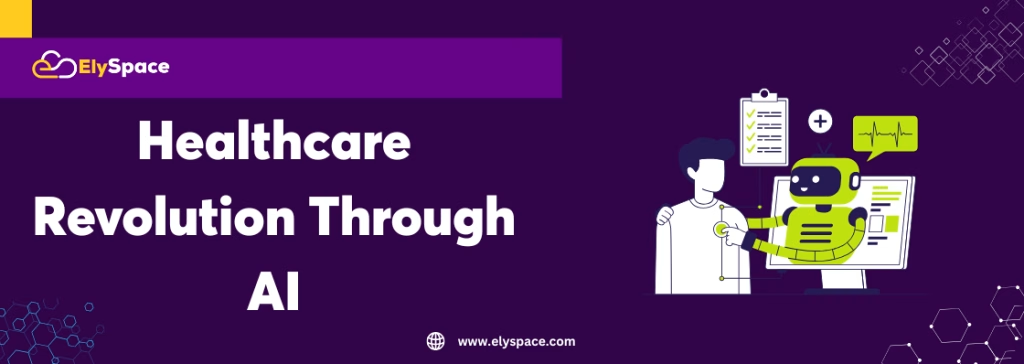
Advanced healthcare AI applications including smartwatch health monitoring, telemedicine consultation, and AI-powered diagnostic equipment
AI-enabled telemedicine platforms can provide initial diagnoses, prioritize patients based on their symptoms, and indicate what may be the best suggested treatment; we now have AI-powered chatbots that can answer simple health questions, remind you when to take your medications, or track your symptoms as needed, which helps clinicians allocate their time to more intensive situations and complexities.
AI-powered applications have completely transformed the way we support mental health with applications that provide emotional support 24/7, including detection for mood patterns and provide personalized coping strategies. These systems can alert users when they show early symptoms of depression, anxiety, or other mental health concerns, so practitioners are given a higher chance of intervening while there is still access to support.
Personalized medicine that have made significant steps using AI to suggest Personalized medicine. For example, AI is helping assess genetic factors, lifestyle factors and medical history to create personalized treatment plans for patients. Furthermore, AI has accelerated drug discovery and drug development, leading to better therapeutic alternatives with fewer side effects.
Education and Learning Enhancement
AI is beginning to transform the educational landscape and advance a digital footprint that personalizes student learning, regardless of age or special learning needs. There are adaptive learning platforms that can offer tailored content based on individual student learning styles, learning pace, and quality of progress. These systems identify gaps in students’ learning so that they can offer suggestions for further support to obtain a more comprehensive understanding.
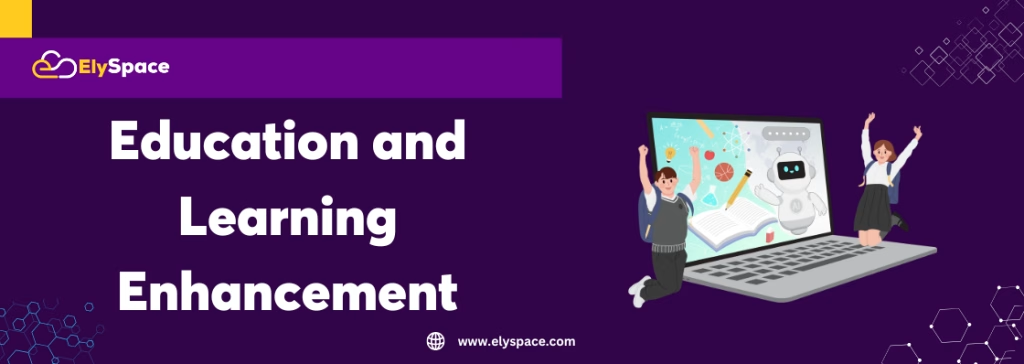
Diverse students engaged with AI-powered learning platforms on tablets and computers in modern classroom and home environments
Artificial intelligence has enhanced language acquisition in a more engaging and genuine way than ever before with AI-driven conversation partners that provide on-demand, real-time responses to pronunciation, grammar, and fluency. AI is able to imitate the speech of models from varying geographical settings to help learners with genuine communication practice and act as an engaged conversation partner.
Professional development and skill building opportunities are now open to everyone with access to AI-driven training tools. AI systems are able to map a relevant path in career development by analyzing job market signals, mapping individual strengths and weaknesses, and identifying career objectives, in order to suggest relevant material to study a specific area or gain a certification in order to fulfill career goals.
Virtual tutoring, delivered by AI systems has become exceptionally advanced. AI tutors can explain a complicated idea in multiple ways and with step-by-step reasoning, and are capable of offering motivation and encouragement. Virtual AI systems are able to provide quality education support when necessary, regardless of the current location, or student economic circumstances and experience.
Transformation of Work and Impact on Productivity
Incorporating artificial intelligence into work (organizational) systems, is changing the workplace in an unprecedented way, similarly to how we now use social media and productivity tools that recognize you, the context you are in and support decisions and automate tasks and activities. Email AI can highlight messages by offering a generic “importance” for users that is context driven, draft responses, book a meeting, and schedule meeting invitations. Calendar AI is able to coordinate multi time zone scheduling and make smart decisions regarding scheduling appointments and meetings.
The creation and analysis of documents is no longer the realm of mere humans – as there are AI systems available that can now write reports, analyze vast data sets, and create presentations all for a particular purpose. AI systems do not replace human creativity or judgment. Instead, these tools enhance human capability – enabling humans to focus more on strategic thinking and innovation, recognizing humans’ highest value. Customer service has greatly improved with AI systems capable of answering questions, interpreting customer records, and providing a specific resolution to support complex questions and inquiries. The system can answer the simpler questions, while allowing the customer service representative to address the complex questions or issues – after the AI’s work is complete (or as a complement). Project management has also become more intelligent as AI systems can extract potential project completion estimates, identify potential project bottlenecks, and make suggestions for optimizing resources. These types of tools allow teams to assess whether timelines are achievable, and rely on data to make decisions.
Entertainment and Media Personalization
Entertainment and media consumption has been irrevocably altered with AI-enhanced recommendation systems known to understand preferences better than the individual does. Unlike a human ability to do this based on memory alone, entertainment and media consumption platforms basis recommendations on an understanding of viewing history, time of day, current events, and even biometric data related to mood thus providing highly customized recommendations that correspond with current mood and preferences.
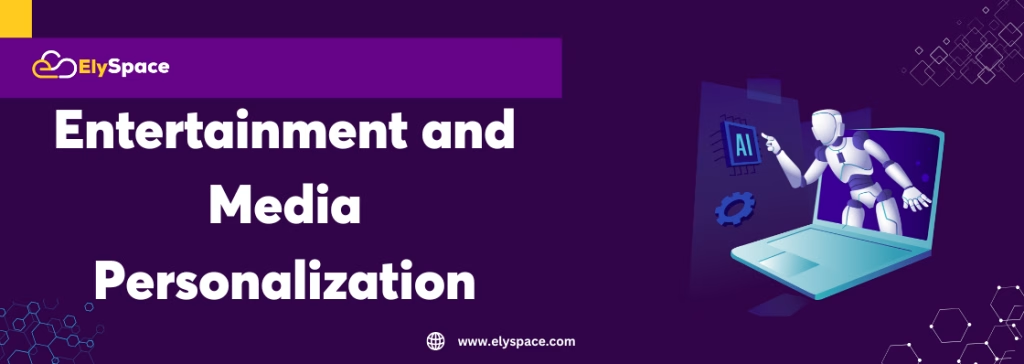
AI-powered entertainment recommendations including streaming services, gaming, and music platforms
Here are examples of situations improved through AI.
The underlying promise of AI is to create content more effectively and easily. AI tools have advanced content creation into AI platforms for video editing, music composition, and graphic design. Facilitating how we create content allows creators to go further and produce high-quality content, opening creative expression and facilitating new creative and artistic partnerships between humans and AI.
Gaming experience has developed through AI modules that mimic behavior patterns for non-player characters (NPC), bring intelligent adaptive difficulty, and procedural content generation that develops uniquely crafted to each player experience.
AI enhances social media engagement by curating feeds, finding and removing harmful content, and connecting users for meaningful social experiences. These technologies can help to limit misinformation, promote positive online experiences, and limit harmful experiences like cyberbullying.
Financial Services and Personal Finance Management
AI applications have changed the way you manage personal finances. Socially responsible companies like Mint, YNAB, Acorns and personal finance steps like coaching provide real-time budget activity, spending analysis, and investment recommendations. Additionally, some AI modules can predict spending in the future, identify unusual spending, and suggest alternatives to improve financial recession.
Fraud detection is becoming highly intelligent as new AI systems can identify suspicious transactions in real time, recognize spending patterns to find anomalies, and further can protect consumers from financial crimes. These systems are constructed to balance security and convenience for users, and identify as few false positives as possible while providing effective fraud protection.
Investment platforms offer AI powered personalized portfolio recommendations and market analysis including risk, based on personal financial goals and investment risk tolerance. Robo-advisors have become increasingly sophisticated, offering insights related to financial advising, while providing additional access to more retail investors compared to traditional financial advisors.
Credit scoring, and lending decisions have been improved beyond conventional systems, since new AI systems can harvest more information than traditional scoring systems that can result in a more accurate assessment and provide access to credit to underserved populations.
Transportation and Mobility Solutions
Transportation has come a long way due to AI-powered transport and mobility solutions with route optimization, maintenance management and preventive operations along with safety. Ride-sharing companies have been utilizing AI to improve driver and passenger matching, as well as to identify demand patterns to set pricing that balances supply and demand.
Public transportation agencies have benefited from AI innovations like scheduling systems, predictive maintenance, and real-time information systems that provide passenger awareness to reduce wait times, delays, and improve the commuter experience.
There are many applications for global positioning systems and AI used for autonomous vehicles that are becoming part of our daily lives, especially in regulated spaces, such as highways and urban settings. Driver-less cars use various nominated AI systems to communicate with other vehicles and infrastructure and navigate complex traffic, such as yielding to pedestrians, lane changes, and securing the safety of passengers.
With respect to AI-enabled traffic management systems, we can analyze patterns of traffic to understand the dynamics of congestion, signal timing and reduce wasted time, fuel and emissions. The AI may even be useful if constructed to adjust to special events, inclement weather and even emergencies to ensure optimal traffic flow.
Environmental Impact and Sustainability
AI technologies are emerging as important tools to help solve environmental solutions and creating more sustainable solutions. Smart grid systems are using AI to optimize energy in power distribution systems, conserve energy sources, and incorporate renewable energies. AI home systems can predict energy demand, contend with load balancing, and assist in transitioning to cleaner energy sources.
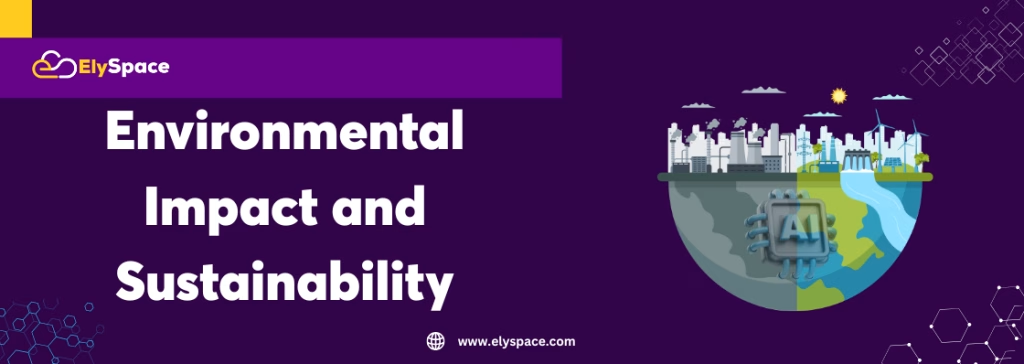
Environmental sustainability technology showing AI-controlled solar panels, smart grid systems, and environmental monitoring sensors
Artificial Intelligence systems have spearheaded environmental monitoring in areas such as air quality analysis or identifying sources of pollution and predicting changes in the environment. AI systems also provide early warnings for environmental hazards and improve decision making for policy makers when it comes to protecting the environment.
AI has enhanced waste management in an efficient manor with respect to route optimization for waste collection, recyclable sorting and forecasting waste generation. This route optimization reduces costs, lowers environmental impacts and improves the use of the circular economy.
AI has firmly impacted the agricultural community through precision farming techniques. Precision farming techniques utilize data driven approaches to optimizing irrigation practices, predict crop yield and reduce the use of pesticides. This ensures greater productivity while reducing environmental and resource impacts.
Challenges and Ethical Considerations
With the ever growing interactive nature of AI into daily lives there are many serious considerations associated with privacy, security and ethical use of technology. Data privacy considerations are more important when weighing AI systems as they work off many personal aspects to complete their function. The negative growing trend of lower public concern for privacy for personalization for people operating their technologies cannot be overlooked.
Algorithmic bias is still an ongoing struggle since AI systems may reproduce or amplify existing social biases if they are not properly designed and monitored. There are still ongoing attempts to make AI systems more inclusive and egalitarian, but establishing this practice requires awareness and dedication from developers and policymakers alike.
Job automation concerns are still relevant as AI systems are now capable of more cognitively taxing work. While AI opens new possibilities and job roles, the transition period needs to be managed so that workers can transition and retrain for this new opportunity.
Insecurity relative to AI systems are also risks. Security threats span both the spectrum of personal privacy to threats of manipulating critical infrastructure. Cyber security can no longer be considered separate from AI when designing systems to protect against new security threats.
Future Trends and Predictions
When looking ahead, several trends will likely influence how AI will continue to develop in our daily lives. Edge computing will allow more AI processing to be done locally, thereby decreasing latency and enhancing data privacy protection. By allowing more computing on the edge, we are also potentially reducing the reliance on various cloud-based forms of computing.
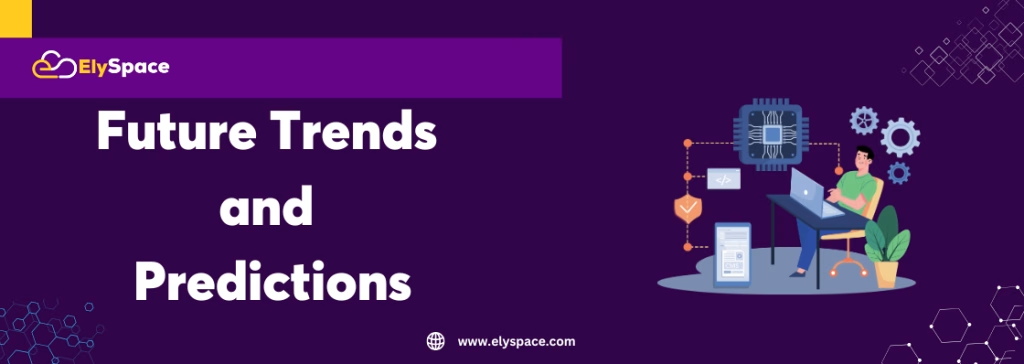
Futuristic scene depicting advanced AI integration with augmented reality, brain-computer interfaces, and seamless human-AI collaboration
By developing multimodal AI systems that can simultaneously process text, images, audio, and video data sources we can create more natural and intuitive interactions. Multimodal AI systems will have a better understanding of context and will therefore provide a more comprehensive level of assistance in a variety of tasks and applications.
AI democratization will continue to expand as low-code and no-code history platforms will allow individuals and small businesses to create and customize their AI solutions without the technical knowledge required to develop. This democratization will help speed up AI adoption in a variety of sectors and use cases.
Explainable AI will be increasingly significant especially as AI systems will be making more and more consequential decisions. As this happens, users will demand more transparency and explanation on how AI systems achieved their conclusions, especially in healthcare, finance, and legal services.
Getting Started with AI in Your Everyday Life
If you are a user interested in including AI in your everyday tasks, the best course of action is to start with a simple application and expand from there. Smart speakers and voice assistants are excellent places to start to use AI in your daily life, providing a means by which they can help you with simpler tasks like taking and reminding you of notes, turning on and off smart home devices, and accessing more information.
AI productivity apps can enhance efficiency and effectively reduce frustration and wasted time in both personal and business contexts. Applications for tasks such as: email management, alerts, calendar management, document and file analysis offer immediate relief when established in the workplace, with proper training and allocation of time with a learning curve that could range from 15-30 minutes of configuration and setup, respectively.
Health and fitness applications can provide personal context and improvement opportunities as users can increase awareness and achievement of personal goals. Beginning with the recording of activity level and slowly expanding to include sleep, nutrition, and hydration, can empower users to improve their lifestyle habits.
Financial management applications can provide insight into spending habits, identify investment opportunities, and develop better budgeting habits. These applications can improve people’s financial literacy and to develop reasonable expectations about how to best manage their financial resources.
For businesses, similar to the website design and hosting business ElySpace, AI applications could enhance customer service, perform constant website checks, register or record what participants see when they visit an event page, monitor website speed and other performance metrics, identify reviews of client products or services to provide feedback and analytical reports to clients.
The key to using AI technologies is to view and approach AI as a tool that adds efficiency to human capacity or efficiency. The most effective combinations are using AI to replace routine or repetitive procedures or ordered sequences supplemented with human creativity, insight and strategy.
To Conclude
The implications of AI on our lives in 2025 will simply mark the start of a revolution, and evolution, that will grow and adapt over time and life cycles. From smart homes anticipating our needs and behaviours, to health care systems that can provide personalized treatments, AI is now an unnoticeable but fundamental aspect of modern life.
Between the increased efficiencies, more personalized experiences, better health systems and improved health outcomes, better quality of life, and reduced overall costs, one cannot deny the positives of utilising AI. However, to benefit from AI we will need to engage significant thought to manage privacy, ethical issues, and the propensity of AI to act on our behalf.
The individuals and organizations that will be more successful moving forward will be the ones that decide to engage AI as a collaborator instead of bypassing human capabilities and actions. The new era for us will be how well we can promote and co-exist artificial intelligence alongside human intelligence, creativity and wisdom.
For organizations like ElySpace in the web design and hosting area, understanding the effect and installation of AI will be a key benchmark for ongoing competition and value for their clients. AI installation in areas like web design, user experience optimization, and customer service, could represent increased revenue growth and innovation opportunities.
Frequently Asked Questions
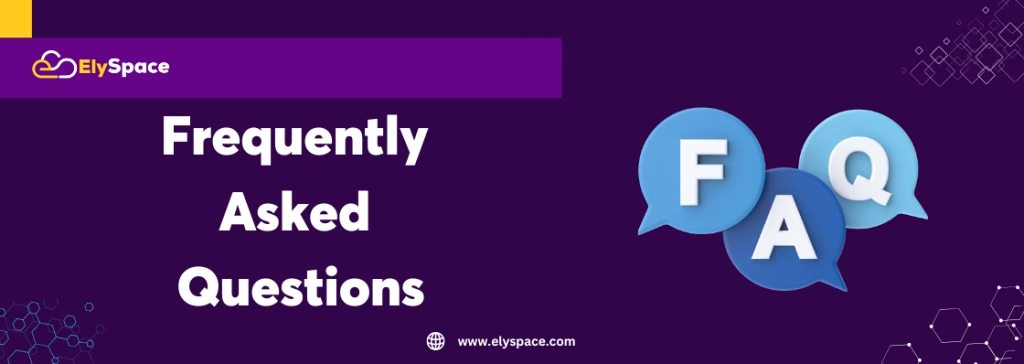
Frequently Asked Questions
What is AI and how does it impact daily experiences in 2025?
Artificial Intelligence (AI) is defined as a computerized or automated device that can carry out tasks that would otherwise require human intelligence to learn, reason and/or solve problems. In 2025, AI impacts daily experiences through smart home technologies, personalized recommendations based on personal data, digital healthcare, transportation optimization, and improving productivity via software automation. All of this is done in the background that provides services and access to intelligent technology that makes the tasks people do on a daily basis easier, simpler and personal to that person.
Is AI safe in personal applications?
AI applications that are dedicated to personal applications tend to have built in safety processes, which ordinarily include encryption of your data, controls on personal data, and often security protocols. As with any other technology that uses your personal information, you should do your research on providers of AI apps and services and what their policies are around knowing what data they use and how you can control your own privacy settings. Reputable AI companies are now implementing security measures as standard practices. If you do any basic research, you should be aware of some best practices for using AI safely.
How can I incorporate AI into my small business without spending a fortune?
Small businesses can leverage AI through cost-effective cloud-based technology, software-as-a-service (SaaS), and AI-enabled customer service, marketing and operational tools. Most AI technologies are charged using a pay-as-you-go method, making them affordable for small businesses with limited budgets. Small businesses can get started using AI through simple AI applications e.g. chatbots, automating scheduling, or improving social media management. Your small business can to use AI right away.
Will AI completely take over jobs from human workers?
While AI will definitely automate some tasks and positions, it is much more likely to change jobs rather than remove them entirely. More often than not, AI eliminates repetitive, low level work, allowing humans to do the planning, creative, and human aspects of work. New job categories are already being created simply because of AI – AI development, management, governance, and ethics. The key is adjusting skill sets, and embracing a mindset of lifelong learning, to work with evolving AI technologies.
How does AI protect users’ personal privacy and data?
AI systems use many measures to protect users’ personal privacy and data including methods like data anonymization, encryption, federated learning (keeping data on device and not in the cloud), and solid access control. The GDPR, as well as rapidly evolving AI regulatory frameworks are also putting restrictions on data access. Ideally, consumers would read the privacy policies, be clear about what data is collected by the tool, and select AI tools that are built from providers that can demonstrate their commitment to privacy by design.
What has been the major advantages of using A.I. in our everyday life?
The major advantages of A.I. in our everyday life include, automation and efficiency, personalized experiences, improved decision-making, safety and security, health monitoring and management, and assistance 24/7. You will also have a reduction in human error, optimization of resources, and recognition of insights we might have missed through human analysis.
How can I begin to use A.I. tools for my personal use?
Getting started with A.I. is easier than many think. First, begin with things you find familiar, like smartphone assistants (Siri, Google Assistant), streaming of recommendations, navigation and so on. Once you feel comfortable with the familiar, begin with productivity tools like e-mail (which can be A.I. powered), calendars (which can be optimized with A.I.), budgeting applications and so on. You’ll likely find many free trials or basic versions to test and play with before committing.
What should people know about A.I. bias and fairness?
A.I. systems can inherit bias from the training data or the process of creating the A.I. system itself. Users should be aware of the potential for bias in A.I. systems, and select A.I. applications from companies that actively work to reduce bias in A.I. by employing diverse datasets to train their A.I., testing for fairness, and monitoring for bias after the A.I. is deployed.
When using AI for critical decisions, it is helpful to know the limitations of the system and consider different points of views.
How is AI impacting the web design and hosting industry?
The impact of AI on web design and hosting has been dramatic. The ability to generate designs automatically, improve personalization of user experiences, allow for intelligent content tweaking, provide deeper cyber security monitoring, and implement AI for better customer service are all ways that AI is changing our industry. AI tools can automate responsive designs, optimizing websites, provide more timely analysis and appropriate analytics, and automate maintenance. For firms like ElySpace, AI will provide a better service offering, and give our clients different solutions to innovation.
What AI developments do we think will develop further?
We predict we will see better human and AI interaction/understanding through more matured language models, greater operating capacity of AI through embedding AI into more devices (Internet of Things); more capabilities of AI to explain itself, and provide transparency; increased sophistication of creative items developed by AI; more sophisticated personalization by AI, better frameworks governing AI and its governing; better energy efficiency for AI, and more accessibility to AI for individuals and small businesses.

